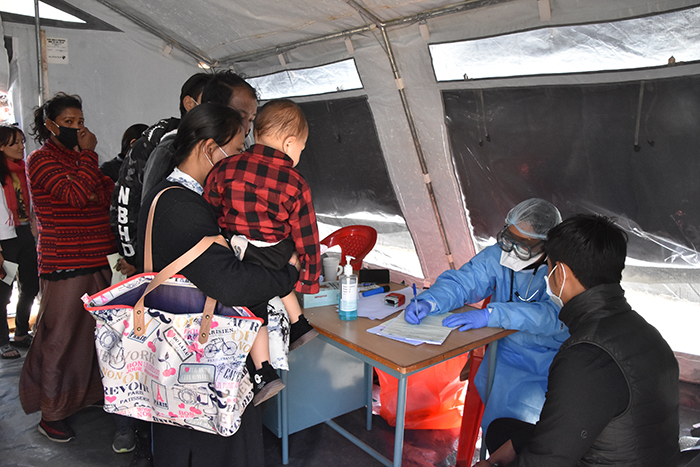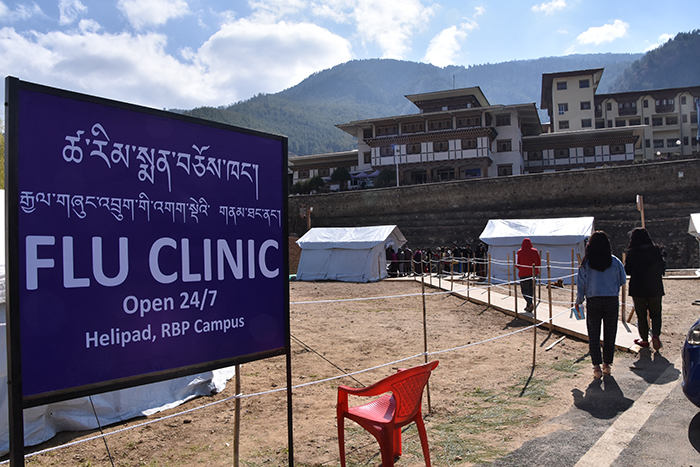Jigme Wangchuk
Where do you go if you have flu-like symptoms?
In Thimphu, there are two flu clinics—one on the Zilnon Namgyeling campus of the Royal Bhutan Police and the other at the headquarters of the Royal Bhutan Army in Lungtenphu.
The arrival of COVID-19 in Bhutan has sparked fear among the people because the disease continues to affect many countries with new cases every day.
Such response is perhaps justified because COVID-19 is a new disease—medicines and right treatment methods are yet to be found. But health experts maintain that there is no reason to panic.
If one can take care of one’s personal hygiene, the disease can be kept at bay.
The 24-hour flu clinics have been getting a steady number of people coming in for checkup. On Sunday, at Zilnon Namgyeling, 336 people showed up for checkup. Yesterday, from 9am until 3pm, 326 people visited the clinic.

Not COVID -19: The flu clinic at the Royal Bhutan Police is set up to check people suffering from common flu
Protocols and procedures
There are direction signs almost everywhere. There are also officials to explain the procedures. So, no problem if you cannot read the signs.
Wash your hands first. At the entrance are the water taps. Then you go straight to the hand sanitiser, placed at the right height and distance, just a few steps ahead. Then there is what could be called both a waiting room and registration centre.
With your prescription form then you go to the doctors. Because it is something new in Bhutan, the image of the setup could look unreal.
Sonam (not her true name) put it straight: “We are now beginning to take free health services seriously. In the long run, this could even kickstart a behavioural change, which is good.”
She’s had to the centre come with a mild fever. She gets a thermal-screening machine pointed on her forehead.
What if you show serious symptoms?
There are test centres where your samples will be taken. You might be further observed because you might need extra care. You could even spread the disease.
All these services are made available to the people.
On the morning shift there are three doctors, two pharmacists, two nurses, two receptionists and two experts manning the lab.
Here is perhaps what the Bhutan have to know. The samples can be taken and analysed at the centres.
One doctor takes over the evening shift. With the team is a receptionist, two lab experts, and two nurses.
It is the same for the night shift at the Zilnon Namgyeling flu clinic.
“We are doing well but that does not mean that we take it lightly,” said Dr Dupthob Sonam, specialist in general OPD, the leader of the team at Zilnon Namgyeling.
The centre at Lungtenphu is perhaps a good example of the nation’s preparedness. Not many people come to the centre but the emergency department is kept open. Anyone can walk in anytime.
The centres in Thimphu have not detected a single suspect case yet.
Likewise, more importantly, all the dzongkhags in the country have set up flu clinics.
Dissemination of information is now critically important.
“The systems are in place. But we cannot afford to be careless,” Dr Dupthob Sonam reiterated.


